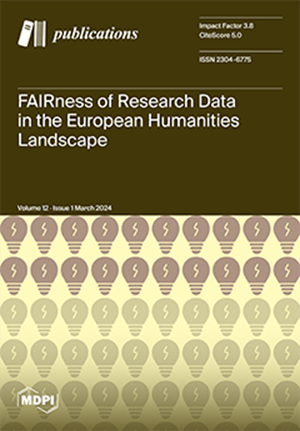ChatGPT 在信息扫盲教学设计中的应用
IF 4.6
Q1 INFORMATION SCIENCE & LIBRARY SCIENCE
引用次数: 0
摘要
最近,生成式人工智能工具的发展在学术图书馆界立即引起了反响。虽然大多数研究都集中在对学术诚信的潜在影响上,但这项工作探索了 ChatGPT 在学术信息素养课程教学材料设计中的建设性应用。研究的出发点是使用公开许可的信息资源或内容基础设施作为创建教学材料的辅助工具。在第一阶段,我们使用提示工程策略、预定义标准和提示脚本开发了课程教材。第二阶段,我们尝试设计了一个连接到预定义源文件语料库的自定义聊天机器人模型。结果表明,在实际教学计划中使用之前,需要对最终的教学材料进行仔细的修改和优化。定制聊天机器人的实验设计能够查询用户定义的特定文档。总之,这些研究结果表明,在内容创建中战略性地、有计划地使用 ChatGPT 技术,可以在时间和成本效率方面产生巨大的效益。在信息扫盲方面,这些结果为将新技术工具整合到教学实践中提供了一个实用的创新解决方案。本文章由计算机程序翻译,如有差异,请以英文原文为准。
Application of ChatGPT in Information Literacy Instructional Design
Recent developments in generative artificial intelligence tools have prompted immediate reactions in the academic library community. While most studies focus on the potential impact on academic integrity, this work explored constructive applications of ChatGPT in the design of instructional materials for courses in academic information literacy. The starting point was the use of openly licenced information resources or content infrastructure as facilitators in the creation of educational materials. In the first phase, course teaching material was developed using a prompt engineering strategy, predefined standards, and a prompt script. As a second step, we experimented with designing a custom chatbot model connected to a pre-defined corpus of source documents. The results demonstrated that the final teaching material required careful revision and optimisation before use in an actual instructional programme. The experimental design of the custom chatbot was able to query specific user-defined documents. Taken together, these findings suggest that the strategic and well-planned use of ChatGPT technology in content creation can have substantial benefits in terms of time and cost efficiency. In the context of information literacy, the results provide a practical and innovative solution to integrate the new technology tool into instructional practices.
求助全文
通过发布文献求助,成功后即可免费获取论文全文。
去求助
来源期刊

Publications
Social Sciences-Library and Information Sciences
CiteScore
6.50
自引率
1.90%
发文量
40
审稿时长
11 weeks
期刊介绍:
The scope of Publications includes: Theory and practice of scholarly communication Digitisation and innovations in scholarly publishing technologies Metadata, infrastructure, and linking the scholarly record Publishing policies and editorial/peer-review workflows Financial models for scholarly publishing Copyright, licensing and legal issues in publishing Research integrity and publication ethics Issues and best practices in the publication of non-traditional research outputs (e.g., data, software/code, protocols, data management plans, grant proposals, etc.) Issues in the transition to open access and open science Inclusion and participation of traditionally excluded actors Language issues in publication processes and products Traditional and alternative models of peer review Traditional and alternative means of assessment and evaluation of research and its impact, including bibliometrics and scientometrics The place of research libraries, scholarly societies, funders and others in scholarly communication.
 求助内容:
求助内容: 应助结果提醒方式:
应助结果提醒方式:


